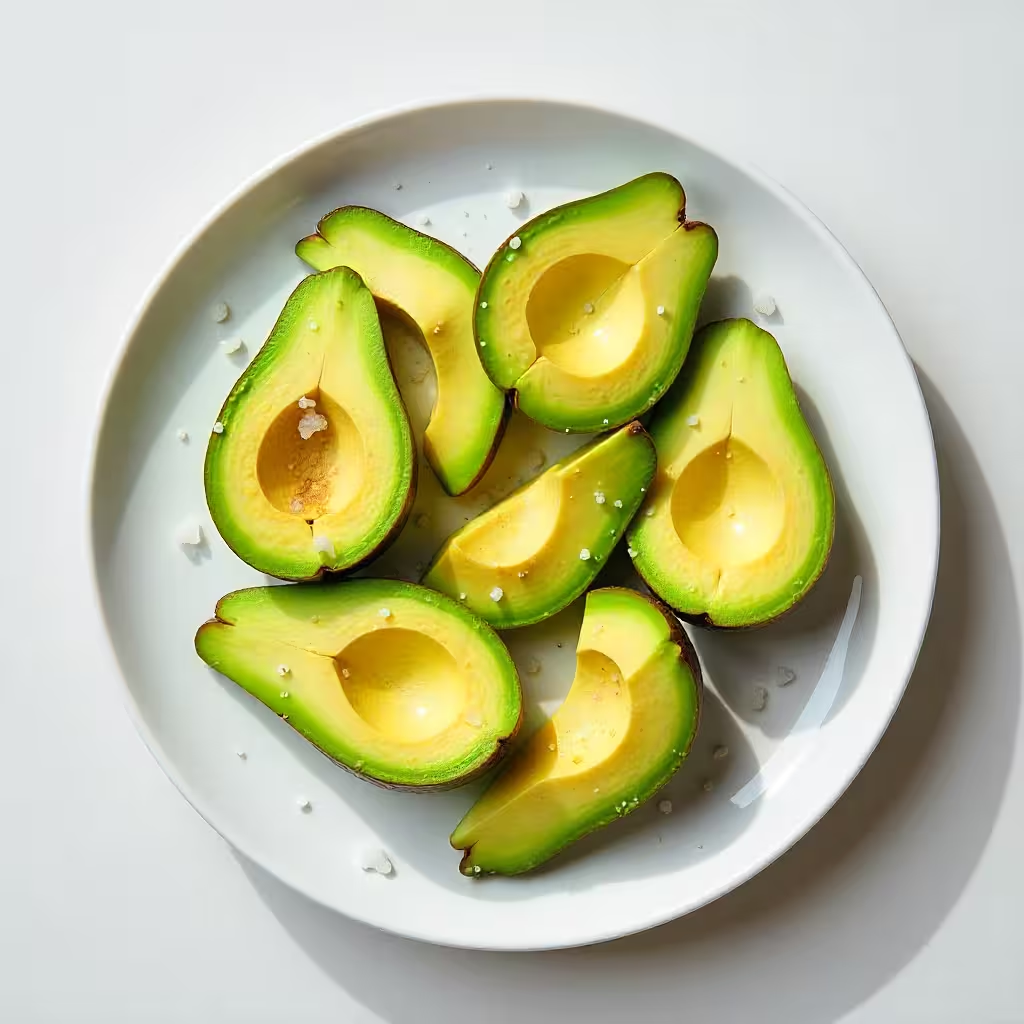Avocados and Women's Abdominal Fat Reduction
Daily avocado consumption has emerged as a promising dietary intervention for women seeking to reduce abdominal fat accumulation and achieve healthier body composition. Research indicates that the unique combination of monounsaturated fatty acids, particularly oleic acid, along with fiber and bioactive compounds found in avocados, may influence how women's bodies store and distribute fat. The fruit's high content of healthy fats helps promote satiety and reduces overall caloric intake, while its low glycemic index prevents insulin spikes that typically encourage fat storage around the midsection. Studies suggest that women who incorporate one avocado daily into their diet experience a redistribution of adipose tissue, with less visceral fat accumulating in the abdominal region and more subcutaneous fat being stored in healthier locations. This shift is particularly significant because abdominal fat, especially visceral fat surrounding internal organs, is strongly associated with increased risks of cardiovascular disease, type 2 diabetes, and metabolic syndrome. The anti-inflammatory properties of avocados, combined with their rich nutrient profile including potassium, magnesium, and vitamins E and K, support hormonal balance and metabolic function in women. Furthermore, the presence of beta-sitosterol in avocados may help regulate cortisol levels, the stress hormone notorious for promoting belly fat storage. By replacing saturated fats and processed carbohydrates with nutrient-dense avocados, women can naturally support their body's ability to metabolize fat more efficiently while maintaining lean muscle mass, ultimately leading to a more favorable body composition and reduced waist circumference over time.
Featured Content

Worldwide, avocados have transitioned from being a regional specialty to a global superfood phenomenon, with consumption rates increasing dramatically over the past two decades. International health organizations have recognized the nutritional value of avocados, particularly for women's health and weight management initiatives. The global market for avocados has expanded exponentially, with production reaching over 8 million metric tons annually, reflecting growing awareness of their health benefits across diverse populations. Countries across Asia, where avocados were traditionally uncommon, have seen remarkable adoption rates as women incorporate them into both traditional and modern diets for their fat-reduction properties. The World Health Organization's emphasis on healthy fat consumption and reduced refined carbohydrate intake aligns perfectly with avocado-rich dietary patterns, making them a key component of global nutrition strategies addressing obesity and metabolic disorders in women.
Additional Insights

Africa represents both a significant producer and an emerging consumer market for avocados, with Kenya, South Africa, and Tanzania leading continental production. African women are increasingly discovering the benefits of avocados for managing body composition, though accessibility and affordability remain challenges in many regions. Traditional African diets in some regions have long incorporated avocados, but modern health awareness campaigns are expanding their use specifically for women's wellness and weight management. Urban African women, particularly in middle-income brackets, are adopting avocado-rich diets as part of lifestyle changes aimed at reducing abdominal fat and preventing lifestyle diseases. However, much of Africa's premium avocado production is exported to European and North American markets, creating a paradox where local populations have limited access to this locally-grown nutritional powerhouse that could significantly benefit women's health outcomes across the continent.
Europe has become one of the largest import markets for avocados, with consumption per capita increasing by over 65% in the past decade, particularly among health-conscious women. European women have embraced avocados as a cornerstone of Mediterranean-style and plant-forward diets, recognizing their role in reducing abdominal fat and improving overall metabolic health. Countries like the United Kingdom, France, Germany, and the Netherlands lead European consumption, with avocados featured prominently in wellness programs, fitness nutrition plans, and medical dietary recommendations for women struggling with weight distribution issues. The European Food Safety Authority has supported research into the cardiovascular and metabolic benefits of avocado consumption, lending scientific credibility to their inclusion in women's health initiatives. European nutritionists frequently prescribe daily avocado consumption as part of comprehensive plans to help women achieve healthier body fat distribution, particularly for those dealing with menopausal weight gain and hormonal changes that favor abdominal fat accumulation.

The United States stands as the world's largest consumer of avocados, with Americans consuming billions of pounds annually, driven largely by health-conscious women seeking natural solutions for body composition management. American women have integrated avocados into diverse meal patterns, from breakfast smoothies to salads and as replacements for less healthy fats, specifically targeting abdominal fat reduction. Clinical studies conducted at major US universities have demonstrated that American women who consume one avocado daily show measurable improvements in visceral fat reduction and waist-to-hip ratio over 12-week periods. The popularity of avocados among American women transcends socioeconomic and ethnic boundaries, though access remains better in urban and suburban areas compared to rural communities. US dietary guidelines and registered dietitians frequently recommend avocados as part of evidence-based nutrition interventions for women dealing with insulin resistance, PCOS, and other conditions associated with problematic abdominal fat storage, making them a mainstream component of American women's health strategies.
Rwanda has emerged as a notable avocado producer in East Africa, with the government promoting both cultivation and domestic consumption as part of national nutrition and economic development strategies. Rwandan women are increasingly incorporating locally-grown avocados into their diets, though awareness of their specific benefits for abdominal fat reduction remains limited compared to more developed markets. Health initiatives in Rwanda are beginning to educate women about the connection between avocado consumption and healthier body composition, particularly in urban centers like Kigali where lifestyle-related health issues are rising. The affordability and local availability of avocados in Rwanda present a unique opportunity for women across income levels to access this nutritious food, unlike imported health foods that remain financially out of reach for most. Rwandan agricultural cooperatives, many led by women, are working to expand both export markets and domestic consumption, creating a scenario where Rwandan women could benefit from this locally-produced crop while supporting their health goals of reducing abdominal fat and improving overall wellness through sustainable, accessible nutrition.
